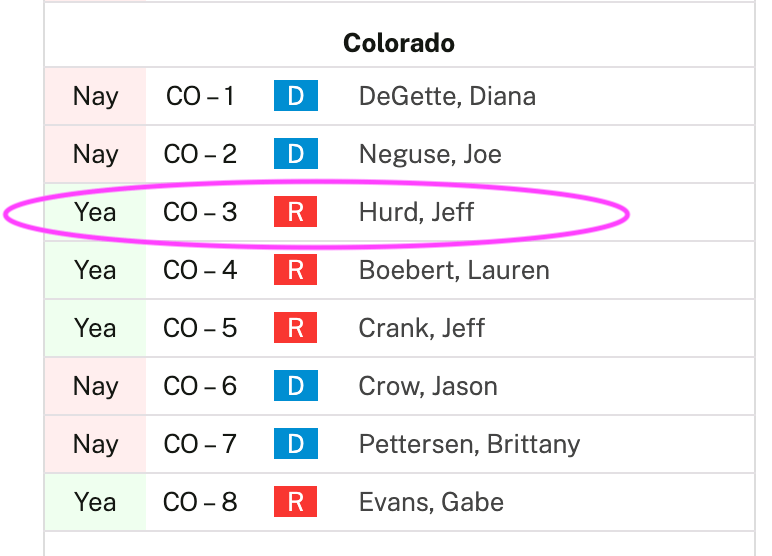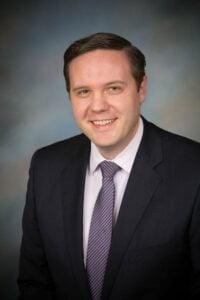
On April 10, the U.S. House of Representatives voted to pass the “Safeguard American Voter Eligibility” (SAVE) Act by a margin of 220-208. CD-3 Rep. Jeff Hurd (R) voted for the measure, essentially a voter suppression law that would make it vastly harder for married women and rural voters to register to vote or update their voter registrations. The bill was supposedly introduced supposedly to make it harder for non-citizens to vote, but there are already laws in place that prohibit non-citizens from voting and in reality, the problem of non-citizens voting is vanishingly rare. For example, a 2024 audit of voters in Georgia found that out of 20 million registered voters, only 20 non-citizens were registered to vote, and when they were found, they were purged from the voter rolls.

This bill requires Americans go in person to register and present “documentary proof of citizenship” that shows their birthplace, like a birth certificate or passport to register to vote. A driver’s license may not work, even if it is “Real ID” license, since it doesn’t show the location of birth. This means people who live in rural areas would have to travel for hours to go in person to their county clerks’ offices to present specific documents to register or update their voter registration. The SAVE Act also requires voters’ last names match the names on their birth certificates, an extra obstacle for married women who changed their last names when they got married, since they would need to show additional documentation of their name change, like a marriage certificate and court record documenting the name change, to register to vote or update their registration if they move to a new address.
In 2004 Arizona passed a ballot measure that did essentially the same thing. It ended up preventing about 35,000 eligible American voters from voting. It was challenged and ultimately struck down by the U.S. Supreme Court in 2013 for conflicting with federal laws that were enacted to make voting easier.
The SAVE Act now goes to the Senate.
